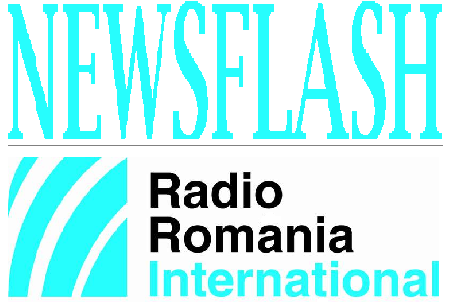May 16, 2014 UPDATE
A roundup of domestic and international news

România Internațional, 16.05.2014, 19:54
Romania is a NATO member, therefore it does not alone in the face of regional threats, said in Bucharest on Friday the NATO Secretary General Anders Fogh Rasmussen. He hailed Bucharest authorities’ decision to increase the defense budget to 2% of the GDP by 2017, saying that Romania would be an example to other NATO member states. Rasmussen’s statements were made after the meeting with Traian Basescu, who reiterated Romania’s decision to consolidate security on the eastern flank of the alliance, against the background of the crisis in neighboring Ukraine and the deterioration of the situation in the Black Sea area. In his turn, Romanian Prime Minister Victor Ponta said Romania was considering a potential permanent deployment of NATO soldiers on its soil. Also on Friday, Anders Fogh Rasmussen held talks with Defense Minister Mircea Dusa, and Foreign Minister Titus Corlatean.
On Thursday and Friday, the Romanian Justice Minister Rober Cazanciuc paid a working visit to Rome, where he met with his Italian counterpart Andrea Orlando. According to a communiqué issued by the Ministry in Bucharest, the talks focused on both European matters, such as the post-Stockholm program, the Cooperation and verification Mechanism and bilateral issues regarding cooperation in the justice field. The Romanian official also met with the Antimafia General Prosecutor Franco Roberto, and prosecutors with the Antimafia National Directorate. Cazanciuc also visited a penitentiary in Rome, where there are some 200 Romanian detainees.
Standard& Poor’s has improved Romania’s rating from BB plus to BBB minus as a result of economic growth and fiscal discipline. BBB minus is considered the lowest investment grade. Romania’s rating is thus similar to that of Russia, Brazil and Spain. According to Eurostat, with 3.8%, Romania recorded the largest economic growth rate in the European Union in the first quarter of the year, seeing the most significant annual growth rate in the EU for the second consecutive quarter.
The reduction of social security contributions by 5% will dominate Romania’s talks with the International Monetary Fund, the World Bank and the European Commission in early June, said the Romanian finance minister Ioana Petrescu. Another measure being considered is the amendment of the Fiscal Code and the Code of Fiscal Procedure, which will be submitted for public debate this summer. According to the finance minister, the GDP increase by 3.8% also allows for measures to support the business environment. In the last four years, Bucharest has finalised two agreements with the International Monetary Fund and the World Bank worth 20 and 5 billion euros, respectively. Another agreement, of a precautionary type and worth 4 billion euros, is currently in place.
The situation with regard to the observance of human rights in Ukraine and Crimea, the peninsula annexed by Russia in March, has worsened dramatically, reads a UN report made public in Kiev on Friday. The document has been criticized in Moscow for “lacking objectivity”. In another move, the Ukrainian Foreign Minister, Andri Deshcitza, has denounced Russian plans to schedule military exercises to coincide with Ukrainian presidential elections on the 25th of May. According to Moscow authorities, Russian troops have already been deployed on the Russian-Ukrainian border, near the region of Luganks and have received peace-keeping training. Lugansk and Donetk have proclaimed their independence in two referendums that have not been recognized by Kiev and the international community. The West has threatened to impose new sanctions on Russia if it interferes with the early presidential elections in Ukraine.
The Turkish police used tear gas, water canons and rubber bullets to disperse the thousands of people who protested on Friday in the town of Soma, where some 300 people died in a mine accident. The protest started following the mine’s management rejection of any accusation of negligence. The protesters called for the resignation of the conservative government. Tuesday’s disaster refueled people’s anger towards the government headed by Recep Tayyip Erdogan. Lots of protests have been staged in many towns and cities across Turkey. Erdogan has rejected any accusation against his government, but the opposition and trade unions accuse them of negligence and indifference to miners and workers in general.




























